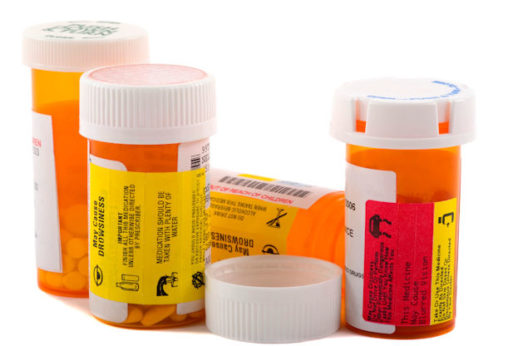The U.S. health care system is the most expensive in the world. One of the main reasons that this is the case is because we are extremely wasteful when it comes to prescription drugs. Numerous studies have shown that expiration dates on pharmaceuticals are misleading, if not altogether false.

Credit: redorbit.com
By law, pharmacies in the United States have to throw out all medications once they reach their “expiration” dates. However, the dates on drug labels are simply the time up to which the Food and Drug Administration and drug companies guarantee their effectiveness. It’s not the date when the drugs go “bad.” In fact, the federal government doesn’t always follow its own rules regarding prescription drugs.
According to a story from ProPublica, the federal government has stockpiles of various medicines located throughout the country. These stashes ensure that the country has ample amounts of drugs in the event of a catastrophic, large-scale emergency. Thankfully, we haven’t had to use many of the medicines from these stockpiles, which means that the drugs reach their expiration dates quite often. And although a pharmacy or hospital would be required to toss the drugs, the federal government has been extending some expiration dates for over 30 years.
In 1986, the Air Force asked the FDA if particular drugs’ expiration dates could be extended in an effort to save money on replacement costs. The FDA and Department of Defense subsequently created the Shelf Life Extension Program. Since then (and ongoing to this day) the program has found that the shelf life of many drugs is, in fact, well beyond their printed expiration dates. A study of 122 drugs released in 2006 found that two-thirds of the drugs whose expiration dates had passed were still stable. Each of the drugs’ dates were extended on average by more than four years.
Money, Money, Money
Marc Young, a pharmacist involved with the extension program from 2006 to 2009, said that the government has had a “ridiculous” return on investment, according to the ProPublica story. Apparently during those years the federal government saved $600 to $800 million because it did not need to replace expired medicines. The same story notes that a Defense Department official said that in 2016 the extension program cost $3.1 million to run. The amount the department saved? An astonishing $2.1 billion.
 Ultimately the idea that drugs “expire” is an economic issue more than a public safety one. Expiration dates allow the FDA to ensure that drugs work safely and are effective for the people taking them. Pharmaceutical companies test to determine a new drug’s shelf life and then propose an expiration date to the FDA. As the current system goes, most drugs end up “expiring” after two to three years.
Ultimately the idea that drugs “expire” is an economic issue more than a public safety one. Expiration dates allow the FDA to ensure that drugs work safely and are effective for the people taking them. Pharmaceutical companies test to determine a new drug’s shelf life and then propose an expiration date to the FDA. As the current system goes, most drugs end up “expiring” after two to three years.
After the FDA approves a drug for public use, the makers then run further tests to make sure the drug is effective up to its expiration date. The FDA doesn’t make them check beyond the printed date, so most don’t. According to Yan Wu, a chemist who is part of a focus group at the American Association of Pharmaceutical Scientists, regulations make further testing expensive and time-consuming. Most companies would rather sell new drugs and create new products than work to extend expiration dates. There’s no economic incentive for them to do so, as they make more money when hospitals, pharmacies and individuals throw away “expired” medications.
Attempts To Change
There have been attempts to change the wasteful practices that plague the prescription drug industry. In 2000, the American Medical Association put forth a resolution calling for such an effort. It pointed to its findings that many drugs’ shelf lives are “considerably longer” than their expiration dates, which leads to “unnecessary waste, higher pharmaceutical costs, and possibly reduced access to necessary drugs for some patients.”
The AMA sent letters to federal agencies and non-governmental pharmaceutical entities asking for a re-examination of expiration dates. Nothing came of it.
Pharmaceutical companies have even extended expiration dates of their products when faced with shortages. This past June the FDA posted extended dates from Pfizer for batches of certain injectable medications used in critical care. The agency noted the lot numbers of the batches it was extending and added six months to a year to the expiration dates. Though pharmacists were appreciative, one wonders why this isn’t standard practice. If drugs are still effective and wouldn’t cause any harm, why throw them away?
The fact that pharmaceutical companies and the federal government are aware of the issue yet are seemingly unwilling to change is upsetting — but not surprising. That’s what tends to happen when a health care system is ultimately more concerned with making money than being honest.

 Prescription Drug Expiration Dates Are Not What They Seem
Prescription Drug Expiration Dates Are Not What They Seem



 The Healing Sound of Singing Bowls
The Healing Sound of Singing Bowls
 “Summons” by Aurora Levins Morales
“Summons” by Aurora Levins Morales














